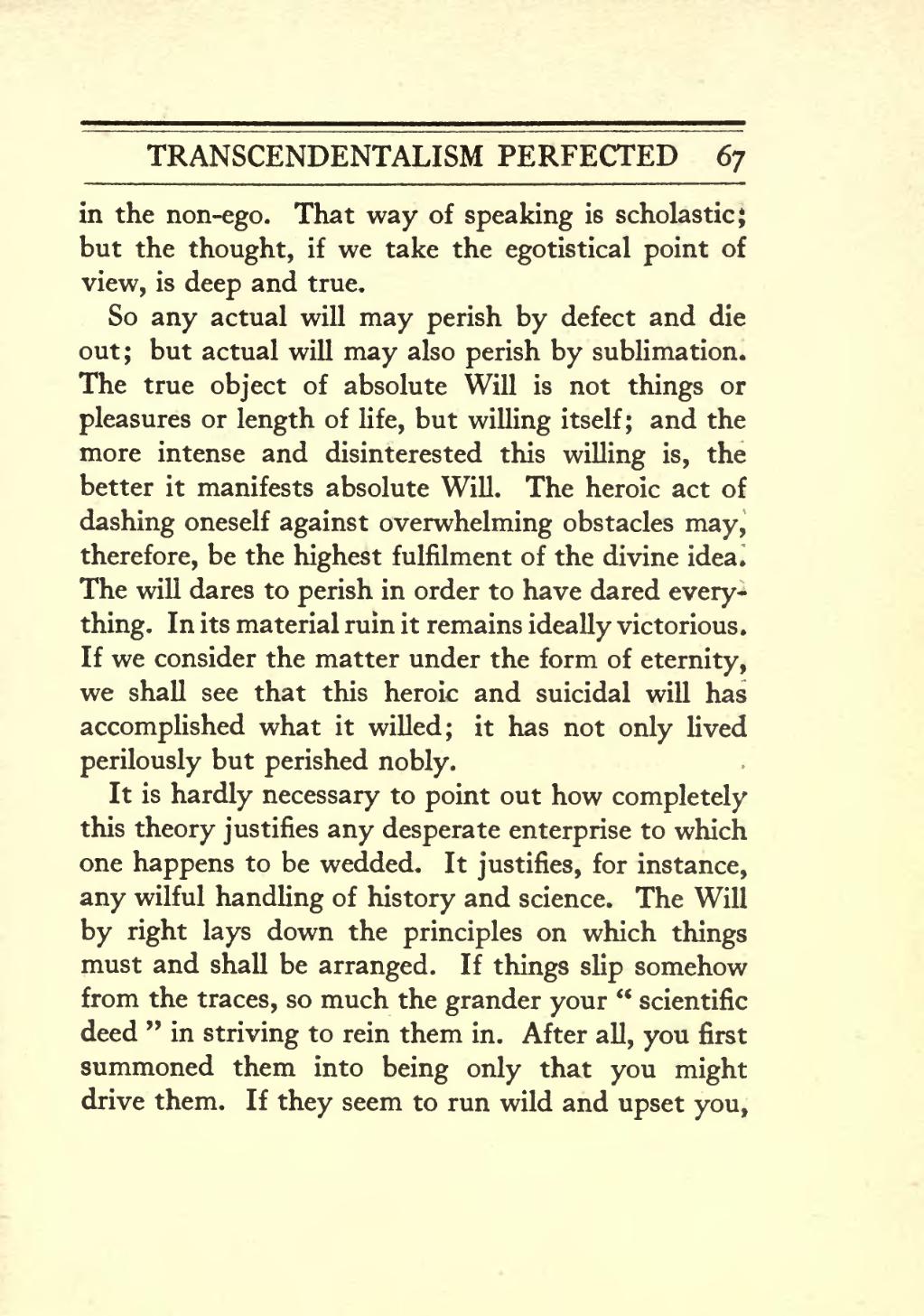in the non-ego. That way of speaking is scholastic; but the thought, if we take the egotistical point of view, is deep and true.
So any actual will may perish by defect and die out; but actual will may also perish by sublimation. The true object of absolute Will is not things or pleasures or length of life, but willing itself; and the more intense and disinterested this willing is, the better it manifests absolute Will. The heroic act of dashing oneself against overwhelming obstacles may, therefore, be the highest fulfilment of the divine idea. The will dares to perish in order to have dared everything. In its material ruin it remains ideally victorious. If we consider the matter under the form of eternity, we shall see that this heroic and suicidal will has accomplished what it willed; it has not only lived perilously but perished nobly.
It is hardly necessary to point out how completely this theory justifies any desperate enterprise to which one happens to be wedded. It justifies, for instance, any wilful handling of history and science. The Will by right lays down the principles on which things must and shall be arranged. If things slip somehow from the traces, so much the grander your “scientific deed” in striving to rein them in. After all, you first summoned them into being only that you might drive them. If they seem to run wild and upset you,
